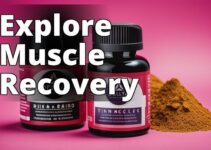| Extraction Method | Description |
|---|---|
| Ethanol Extraction | Soaking the cannabis plant material in high-proof ethanol to dissolve the delta 9 THC and other cannabinoids. The mixture is then filtered, and the solvent is evaporated to obtain a concentrated extract. |
| Hydrocarbon Extraction | Utilizing hydrocarbon solvents like butane or propane to extract delta 9 THC. This method is highly efficient and allows for the extraction of a wide range of cannabinoids. However, it requires specialized equipment and careful handling due to the flammability and potential health risks associated with hydrocarbon solvents. |
| CO2 Extraction | Pressurizing CO2 to its supercritical state, allowing it to act as both a liquid and a gas. The supercritical CO2 is then passed through the cannabis plant material, extracting the delta 9 THC and other compounds. CO2 extraction offers excellent control over the extraction process, resulting in high-quality extracts. |
b) Solventless Extraction:
Solventless extraction techniques are gaining popularity in the cannabis industry due to their perceived safety and the potential for producing high-quality extracts. Two common solventless extraction methods include rosin press and ice-water hash.
| Extraction Method | Description |
|---|---|
| Rosin Press | Applying heat and pressure to cannabis flowers or hash to extract the delta 9 THC and other cannabinoids. This technique does not require the use of any solvents, making it a safer and more environmentally friendly option. |
| Ice-Water Hash | Agitating cannabis plant material in ice-cold water to separate the trichomes, which contain the delta 9 THC and other cannabinoids, from the plant material. The mixture is then filtered through multiple screens or meshes to collect the trichomes. |
What readers will learn by reading the article:
- Definition and properties of delta 9 THC.
- Different extraction methods and their pros and cons.
- Factors influencing delta 9 THC extraction, such as strain selection and plant material preparation.
- Quality and purity considerations.
- Legal and regulatory considerations.
- Safety precautions during the extraction process.
Understanding Delta 9 THC
Delta 9 THC, also known as delta-9-tetrahydrocannabinol, is a psychoactive compound found in cannabis. It is responsible for the euphoric effects commonly associated with marijuana use. Delta 9 THC interacts with the endocannabinoid system in the body, specifically the CB1 receptors, which are primarily located in the brain and central nervous system.
Differentiating between delta 9 THC derived from hemp and marijuana is crucial in understanding its legal status. Hemp-derived delta 9 THC refers to the compound extracted from the hemp plant, which contains less than 0.3% delta 9 THC by dry weight. This low concentration of delta 9 THC makes it legal under the 2018 farm bill, which legalized hemp cultivation and the production of hemp-derived products. On the other hand, marijuana-derived delta 9 THC is extracted from cannabis plants that contain higher levels of the compound and is subject to stricter regulations in many jurisdictions.
Extraction Methods
a) Solvent-Based Extraction:
Solvent-based extraction methods are widely used in the cannabis industry to extract delta 9 THC from plant material. Ethanol, hydrocarbon, and CO2 are among the common solvents used in this process.
- Ethanol Extraction:
Ethanol extraction involves soaking the cannabis plant material in high-proof ethanol to dissolve the delta 9 THC and other cannabinoids. The mixture is then filtered, and the solvent is evaporated to obtain a concentrated extract. This method is relatively simple and cost-effective, making it a popular choice for small-scale operations. However, ethanol extraction may result in a lower yield of delta 9 THC compared to other methods. - Hydrocarbon Extraction:
Hydrocarbon extraction, such as butane or propane extraction, utilizes hydrocarbon solvents to extract delta 9 THC. This method is highly efficient and allows for the extraction of a wide range of cannabinoids. However, it requires specialized equipment and careful handling due to the flammability and potential health risks associated with hydrocarbon solvents. - CO2 Extraction:
CO2 extraction is a more advanced and precise method that utilizes carbon dioxide as a solvent. This method involves pressurizing CO2 to its supercritical state, allowing it to act as both a liquid and a gas. The supercritical CO2 is then passed through the cannabis plant material, extracting the delta 9 THC and other compounds. CO2 extraction offers excellent control over the extraction process, resulting in high-quality extracts. However, it requires expensive equipment and expertise.
b) Solventless Extraction:
Solventless extraction techniques are gaining popularity in the cannabis industry due to their perceived safety and the potential for producing high-quality extracts. Two common solventless extraction methods include rosin press and ice-water hash.
- Rosin Press:
The rosin press method involves applying heat and pressure to cannabis flowers or hash to extract the delta 9 THC and other cannabinoids. This technique does not require the use of any solvents, making it a safer and more environmentally friendly option. The resulting rosin extract can be highly potent and terpene-rich, offering a flavorful experience for users. - Ice-Water Hash:
Ice-water hash, also known as bubble hash, involves agitating cannabis plant material in ice-cold water to separate the trichomes, which contain the delta 9 THC and other cannabinoids, from the plant material. The mixture is then filtered through multiple screens or meshes to collect the trichomes. This method is relatively simple and does not involve the use of any solvents. However, it may result in a lower yield compared to solvent-based extraction methods.
When comparing solventless extraction with solvent-based methods, it's important to consider the pros and cons of each. Solvent-based extraction methods generally offer higher extraction efficiency and yield, but they require the use of potentially hazardous solvents. On the other hand, solventless extraction techniques are safer and more environmentally friendly, but they may have lower extraction efficiency and yield.
Factors Influencing Extraction
a) Strain Selection:
The selection of the right cannabis strain can significantly impact the delta 9 THC extraction process. Different strains have varying levels of delta 9 THC and other cannabinoids, which can affect the overall yield and quality of the extract. Some strains are naturally high in delta 9 THC, while others may contain higher levels of other cannabinoids, such as CBD.
When aiming for a high delta 9 THC yield, it is essential to choose strains that have been specifically bred or selected for their delta 9 THC content. These strains are often referred to as “high-THC” or “THC-dominant” strains. However, it's important to note that the cultivation and distribution of high-THC strains may be subject to legal restrictions in some jurisdictions.
b) Plant Material Preparation:
Properly preparing the cannabis plant material before extraction is crucial for optimal delta 9 THC extraction. The plant material should be adequately dried and cured to remove excess moisture and enhance the extraction efficiency.
Various drying methods are commonly used, including hang-drying, rack-drying, and machine-drying. Hang-drying is one of the most common methods and involves hanging the cannabis plants upside down in a cool, dark, and well-ventilated space. This method allows for gradual drying, which helps preserve the potency and flavor of the delta 9 THC. Rack-drying involves placing the cannabis plants on drying racks to allow air circulation around the plant material. Machine-drying utilizes specialized equipment to dry the cannabis quickly, but it may result in a lower quality extract.
Proper curing of the dried cannabis flowers is also important to enhance the extraction process. Curing involves storing the dried flowers in a controlled environment with specific humidity and temperature levels. This process allows for the breakdown of chlorophyll and other compounds, resulting in a smoother and more flavorful extract.
c) Decarboxylation:
Decarboxylation is a crucial step in the delta 9 THC extraction process, as it activates the compound by removing a carboxyl group (COOH) from the delta 9 THC acid (THCA). The decarboxylation process converts THCA into delta 9 THC, which is the psychoactive form of the compound.
There are different methods of decarboxylation, including heat activation and chemical activation. Heat activation involves applying heat to the cannabis plant material or extract for a specific period to induce decarboxylation. This can be done through baking, vaporization, or cooking. Chemical activation involves the use of specific chemicals or catalysts to promote decarboxylation.
The choice of decarboxylation method can impact the potency and flavor of the delta 9 THC extract. Heat activation methods are commonly used due to their simplicity and effectiveness. However, it's important to carefully control the temperature and duration of the decarboxylation process to avoid degrading the delta 9 THC or other cannabinoids.
Case Study: Maximizing Delta 9 THC Yield through Strain Selection
In the pursuit of maximizing delta 9 THC yield, cannabis breeders and cultivators often experiment with different strains to find the most potent ones. One such case is the story of John, a cannabis enthusiast and amateur cultivator.
John had been growing his own cannabis plants for a few years and was always on the lookout for strains with high delta 9 THC content. After doing some research, he decided to try his hand at growing a strain called “Purple Haze,” known for its potent effects.
With careful attention to detail and optimal growing conditions, John nurtured his Purple Haze plants from seedlings to maturity. He followed proper cultivation practices, providing the plants with the right nutrients, lighting, and environment.
When it was time for harvest, John carefully collected the flowers and decided to extract delta 9 THC using a solvent-based method. He used ethanol as the solvent, following a step-by-step process he had researched thoroughly.
To his delight, John obtained a high yield of delta 9 THC from his Purple Haze plants. The strain's genetic makeup and specific cannabinoid profile played a significant role in the extraction process. The Purple Haze strain naturally contained high levels of delta 9 THC, which translated into a potent extract.
This case study highlights the importance of strain selection when aiming to maximize delta 9 THC yield. Different strains have varying levels of delta 9 THC, which can significantly impact the extraction process. Cultivators and extractors like John can leverage strain selection to achieve their desired potency and optimize their extraction efforts. By understanding the properties and genetic makeup of different strains, cultivators can make informed decisions that lead to higher delta 9 THC yields.
Quality and Purity Considerations
Obtaining high-quality delta 9 THC extracts is crucial for ensuring a safe and enjoyable experience for consumers. The purity of the extract can be affected by various factors, including impurities and contaminants that may be present in the plant material or introduced during the extraction process.
Quality control measures and testing requirements play a vital role in ensuring the purity of delta 9 THC extracts. Proper testing can identify and quantify the levels of delta 9 THC, other cannabinoids, terpenes, and potential contaminants, such as pesticides, heavy metals, and residual solvents. Testing should be conducted by certified laboratories to ensure accurate and reliable results.
Manufacturers should also implement good manufacturing practices (GMP) to maintain consistent quality and safety standards. This includes proper sanitation, equipment maintenance, and documentation of the extraction process. GMP compliance helps minimize the risk of contamination and ensures that the delta 9 THC extracts meet the required quality standards.
Legal and Regulatory Considerations
The legal status of delta 9 THC extraction, particularly from hemp, is a topic of ongoing debate and regulation. The 2018
Answers To Common Questions
Q. What is delta 9 THC extraction?
A. Delta 9 THC extraction is the process of isolating THC from cannabis plants.
Q. How is delta 9 THC extracted?
A. Delta 9 THC is typically extracted using solvents like ethanol or CO2.
Q. Who can perform delta 9 THC extraction?
A. Professionals with knowledge and experience in cannabis extraction can perform it.
Q. What are the benefits of delta 9 THC extraction?
A. It allows for the production of concentrated THC products like oils or edibles.
Q. How long does delta 9 THC extraction take?
A. The extraction process can take several hours to complete.
Q. What if I don't have access to professional extraction equipment?
A. It is recommended to seek professional help to ensure safety and quality.
Dr. Samantha Roberts is a renowned chemist with extensive experience in the field of cannabis extraction. She holds a Ph.D. in Organic Chemistry from the University of California, Berkeley, where her research focused on the synthesis and analysis of natural products. Dr. Roberts has since dedicated her career to studying the extraction and purification of cannabinoids, with a particular emphasis on Delta 9 THC.
Throughout her career, Dr. Roberts has published numerous articles in reputable scientific journals, shedding light on various extraction techniques and their applications in the cannabis industry. Her expertise in solvent-based and solventless extraction methods has made her a sought-after consultant for cannabis companies looking to optimize their extraction processes.
Dr. Roberts is also well-versed in the legal and regulatory considerations surrounding cannabis extraction, ensuring that her clients remain compliant with the ever-evolving laws in the industry. Her ability to bridge the gap between scientific knowledge and practical application has earned her a reputation as a trusted authority in the field.
With her wealth of knowledge and experience, Dr. Roberts aims to demystify Delta 9 THC extraction in this article, providing readers with valuable insights, techniques, and legalities to navigate the world of cannabinoid extraction effectively.




